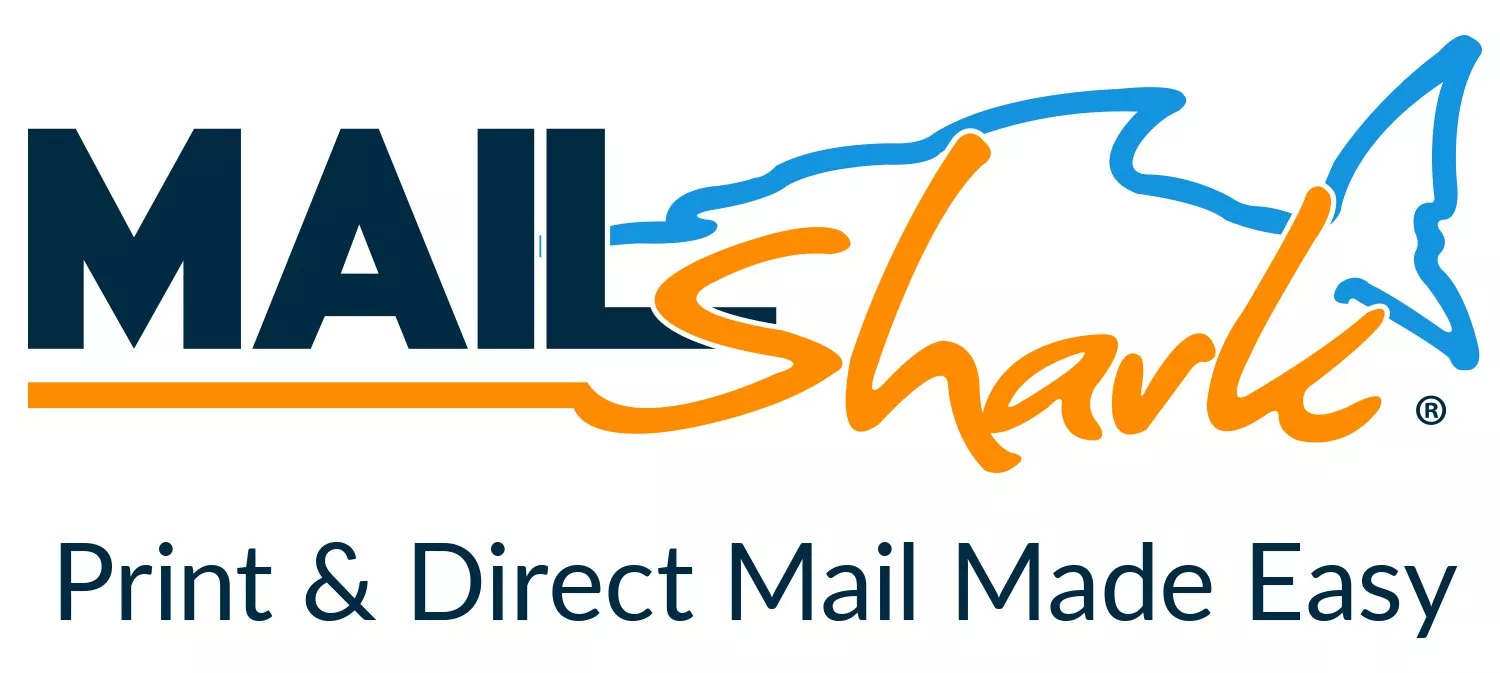Are Part Margins getting too hard to achieve?
-
Available Subscriptions
-
Have you checked out Joe's Latest Blog?
-
By Joe Marconi in Joe's Blog0 commentsIt always amazes me when I hear about a technician who quits one repair shop to go work at another shop for less money. I know you have heard of this too, and you’ve probably asked yourself, “Can this be true? And Why?” The answer rests within the culture of the company. More specifically, the boss, manager, or a toxic work environment literally pushed the technician out the door.
While money and benefits tend to attract people to a company, it won’t keep them there. When a technician begins to look over the fence for greener grass, that is usually a sign that something is wrong within the workplace. It also means that his or her heart is probably already gone. If the issue is not resolved, no amount of money will keep that technician for the long term. The heart is always the first to leave. The last thing that leaves is the technician’s toolbox.
Shop owners: Focus more on employee retention than acquisition. This is not to say that you should not be constantly recruiting. You should. What it does means is that once you hire someone, your job isn’t over, that’s when it begins. Get to know your technicians. Build strong relationships. Have frequent one-on-ones. Engage in meaningful conversation. Find what truly motivates your technicians. You may be surprised that while money is a motivator, it’s usually not the prime motivator.
One last thing; the cost of technician turnover can be financially devastating. It also affects shop morale. Do all you can to create a workplace where technicians feel they are respected, recognized, and know that their work contributes to the overall success of the company. This will lead to improved morale and team spirit. Remember, when you see a technician’s toolbox rolling out of the bay on its way to another shop, the heart was most likely gone long before that.
-
-
Similar Topics
-
By carmcapriotto
Thanks to our partner Promotive
In this episode of Business by the Numbers, Hunt Demarest, CPA of Paar Melis and Associates, explores the details behind what former President Trump is calling the "largest tax cut in U.S. history." What’s actually in the proposed bill? Will any of it pass Congress? And most importantly, what could it mean for auto repair shop owners and other small business operators?
Hunt unpacks what we know so far, what’s still uncertain, and how business owners can start thinking strategically. From potential expansions of the Child Tax Credit and QBI deduction to the controversial proposals of eliminating taxes on tips, overtime, and Social Security, this episode covers the key elements that matter most.
Whether you’re looking to stay informed or proactively plan for future changes, this episode offers a grounded look at what’s on the table—and what’s likely to be left off.
Key Takeaways:
What’s included in the proposed 2025 tax cut and what’s still up for debate The current status of the Child Tax Credit, QBI deduction, bonus depreciation, and SALT deduction cap Potential elimination of taxes on Social Security income—and whether that’s realistic A breakdown of the proposed “Millionaire Tax” and its implications for high earners Why the talk of tax-free tips and overtime could create major planning opportunities for business owners
What shop owners need to watch for and how to prepare as legislative discussions continue
Thanks to our partner, Promotive
It’s time to hire a superstar for your business; what a grind you have in front of you. Introducing Promotive, a full-service staffing solution for your shop. Promotive has over 40 years of recruiting and automotive experience. If you need qualified technicians and service advisors and want to offload the heavy lifting, visit www.gopromotive.com.
Paar Melis and Associates – Accountants Specializing in Automotive Repair
Visit us Online: www.paarmelis.com
Email Hunt: podcast@paarmelis.com
Text Paar Melis @ 301-307-5413
Download a Copy of My Books Here:
Wrenches to Write-Offs Your Perfect Shop
The Aftermarket Radio Network: https://aftermarketradionetwork.com/
Remarkable Results Radio Podcast with Carm Capriotto https://remarkableresults.biz/
Diagnosing the Aftermarket A to Z with Matt Fanslow https://mattfanslow.captivate.fm/
Business by the Numbers with Hunt Demarest https://huntdemarest.captivate.fm/
The Auto Repair Marketing Podcast with Kim and Brian Walker https://autorepairmarketing.captivate.fm/
The Weekly Blitz with Chris Cotton https://chriscotton.captivate.fm/
Speak Up! Effective Communication with Craig O'Neill https://craigoneill.captivate.fm/
Click to go to the Podcast on Remarkable Results Radio
-
Episode 216 - Can You Achieve High Performance Through Coaching with Cecil Bullard and Michael SmithBy Changing The Industry
Episode 216 - Can You Achieve High Performance Through Coaching with Cecil Bullard and Michael Smith
-
By carmcapriotto
Thank You To Our Partners The Institute, AutoFlow, AutoLeap, Shop Dog Marketing, In-Bound
Watch Full Video Episode
In our Episode Today:
Listeners will recall the Pilot Talk (Episode 34) with Austin Brumfield - and this time our host Craig O’Neill welcomes Austin’s amazing wife, Evangela, to the podcast!
Evangela is a pilot, an Airframe and Powerplant Mechanic, and a missionary.
As mentioned with Austin, the Brumfields are joining Arctic Barnabas Ministry’s (ABM) which will take them and their aviation skills to the remote regions of Alaska. ABM aims to support and encourage those who serve in Alaska, so they don’t decide to leave!
Since do leave after confronting hardship and the remote nature of Alaska- it becomes unlikely for people who cannot leave their remote communities to develop trust with any future newcomers.
The Word of the Day:
Barnabas:
Proper Noun
Meaning: "son of encouragement”
In the conversation listeners will enjoy hearing Evangela share and reflect on a number of topics including:
Her passion for the mechanics of aircraft - and the importance of the A&P license What it is like communicating with your Certified Flight Instructor (CFI) - when you are married to your CFI How speaking through the radio in a solo flight instills a sense of confidence What it’s like to speak in front of churches to raise support Why raising support for living in Alaska is nearly twice as hard as other missions Compelling details about the challenges of remote living and isolation felt by people in the remote regions of Alaska Airplanes as a bridge for communication Also airplanes in general. We do talk a bit about airplanes…
Those who know Craig, know that when he entered college out of high-school - he wanted to become a missionary pilot himself. Meeting the Brumfields later in life when he took up flight lessons in 2021 cultivated a new friendship and a new means to fuel that passion by supporting the Brumfields and welcoming them to share their story.
At Speak Up - we believe stories adjacent to our industry prove to illustrate solutions for our day-to-day situations. A key takeaway from Evangela is for us to remember to be proactive about being a Barnabas in your part of the world!
Don’t just wait to be called!
And be prepared to go this distance necessary to support those who need support!
We hope you’ll follow the Brumfield’s journey - details below!
For more information on Arctic Barnabas Ministry - Check out their site: here
You can follow Austin and Evangela on Facebook, where they post their updates and newsletters by clicking here
Evangela shared a wonderful Youtube video that was produced recently regarding missions in Alaska. ABM serves some of the individuals in the video so it's a great way to visualize the people, places, and need for ABM in Alaska. You can watch it by clicking here.
Thank You To Our Partners The Institute, AutoFlow, AutoLeap, Shop Dog Marketing, In-Bound:
The Institute at WeAreTheInstitute.com. "Stop stressing over your business, you deserve a good night's sleep. The Institute’s coaching helps you achieve success and financial peace.
AutoFlow at AutoFlow.com. Your partner in technology, Autoflow consolidates your client interactions - before, during and after the visit to a single thread. Learn more at Autoflow.com
AutoLeap at AutoLeap.com. Are you tired of juggling multiple tools to manage your auto repair shop? Say hello to the streamlined efficiency of AutoLeap, the #1 all-in-one Auto Repair Shop Management Software!
Shop Dog Marketing at Shop Dog Marketing.com. "Want to see your auto repair shop thrive? Let Shop Dog Marketing be your guide. Our customer-first approach, combined with AI-driven creative content, ensures top rankings.
In-Bound at CallInBound.com. Cover your communication needs and revolutionize your auto repair business with AI-driven call analytics from InBound.
Contact Information
Email Craig O'Neill: speakup@craigoneill.net Join Our Virtual Toastmasters Club: https://remarkableresults.biz/toastmasters
The Aftermarket Radio Network: https://aftermarketradionetwork.com/
Remarkable Results Radio Podcast with Carm Capriotto: Advancing the Aftermarket by Facilitating Wisdom Through Story Telling and Open Discussion. https://remarkableresults.biz/
Diagnosing the Aftermarket A to Z with Matt Fanslow: From Diagnostics to Metallica and Mental Health, Matt Fanslow is Lifting the Hood on Life. https://mattfanslow.captivate.fm/
Business by the Numbers with Hunt Demarest: Understand the Numbers of Your Business with CPA Hunt Demarest. https://huntdemarest.captivate.fm/
The Auto Repair Marketing Podcast with Kim and Brian Walker: Marketing Experts Brian & Kim Walker Work with Shop Owners to Take it to the Next Level. https://autorepairmarketing.captivate.fm/
The Weekly Blitz with Chris Cotton: Weekly Inspiration with Business Coach Chris Cotton from AutoFix - Auto Shop Coaching. https://chriscotton.captivate.fm/
Click to go to the Podcast on Remarkable Results Radio
-
By carmcapriotto
Thanks to our partner Promotive
Credit card fees are eating into shop owners' profits — but should you be passing those costs onto customers? In this episode of Business By The Numbers, Hunt revisits the hot-button topic and shares what’s changed since 2021.
Key Points:
Why more shops are experimenting with credit card surcharges today Real-world results from shops that do charge fees — and those that don’t The hidden dangers of incentivizing cash payments How pricing strategy impacts customer loyalty and shop profitability Hunt’s no-BS recommendation for handling credit card costs in 2025
Thanks to our partner, Promotive
It’s time to hire a superstar for your business; what a grind you have in front of you. Introducing Promotive, a full-service staffing solution for your shop. Promotive has over 40 years of recruiting and automotive experience. If you need qualified technicians and service advisors and want to offload the heavy lifting, visit www.gopromotive.com.
Paar Melis and Associates – Accountants Specializing in Automotive Repair
Visit us Online: www.paarmelis.com
Email Hunt: podcast@paarmelis.com
Text Paar Melis @ 301-307-5413
Download a Copy of My Books Here:
Wrenches to Write-Offs Your Perfect Shop
The Aftermarket Radio Network: https://aftermarketradionetwork.com/
Remarkable Results Radio Podcast with Carm Capriotto https://remarkableresults.biz/
Diagnosing the Aftermarket A to Z with Matt Fanslow https://mattfanslow.captivate.fm/
Business by the Numbers with Hunt Demarest https://huntdemarest.captivate.fm/
The Auto Repair Marketing Podcast with Kim and Brian Walker https://autorepairmarketing.captivate.fm/
The Weekly Blitz with Chris Cotton https://chriscotton.captivate.fm/
Speak Up! Effective Communication with Craig O'Neill https://craigoneill.captivate.fm/
Click to go to the Podcast on Remarkable Results Radio
-
-
By carmcapriotto
Thank You To Our Partners The Institute, AutoFlow, AutoLeap, Shop Dog Marketing, In-Bound
Watch Full Video Episode
In our episode today, we welcome guest Hunt Demarest, CPA ABV.
Hunt is the host of Business by the Numbers and, as our host Craig O’Neill will tell you… Hunt uses words really well for a numbers man!
This episode came to be after Craig found himself on a walk and listening to one of Hunts recent episodes, Episode 163 - Where are my customers? It’s a great episode on getting to the root of what the numbers are actually telling you - and guess what - it involves actually picking up the phone and talking to people!
Hunt’s episode played right after Craig had listened to an episode on a health/wellness program which spoke on a similar topic… going straight to the source of information!
Often times we can get caught up in the minutia of details and analysis.
If we are not careful - it can lead to assumptions and wrong conclusions.
As Hunt says, “Numbers do not lie, but they do not tell the whole story.”
Getting the whole story inevitably involves communication - and it isn’t always comfortable for people to pick up a phone to get it.
While the takeaway for today’s episode is in the title, it expands as you listen to Hunt and Craig explore a range of topics from talking to clients, employees, and even family.
Today’s WOTD is Gumption
noun
the ability to make intelligent decisions especially in everyday matters
Learn more about Hunt Demarest here:
https://paarmelis.com/business-by-the-numbers/
Look for his book here: https://a.co/d/hAf0cDF
Thank You To Our Partners The Institute, AutoFlow, AutoLeap, Shop Dog Marketing, In-Bound:
The Institute at WeAreTheInstitute.com. "Stop stressing over your business, you deserve a good night's sleep. The Institute’s coaching helps you achieve success and financial peace.
AutoFlow at AutoFlow.com. Your partner in technology, Autoflow consolidates your client interactions - before, during and after the visit to a single thread. Learn more at Autoflow.com
AutoLeap at AutoLeap.com. Are you tired of juggling multiple tools to manage your auto repair shop? Say hello to the streamlined efficiency of AutoLeap, the #1 all-in-one Auto Repair Shop Management Software!
Shop Dog Marketing at Shop Dog Marketing.com. "Want to see your auto repair shop thrive? Let Shop Dog Marketing be your guide. Our customer-first approach, combined with AI-driven creative content, ensures top rankings.
In-Bound at CallInBound.com. Cover your communication needs and revolutionize your auto repair business with AI-driven call analytics from InBound.
Contact Information
Email Craig O'Neill: speakup@craigoneill.net Join Our Virtual Toastmasters Club: https://remarkableresults.biz/toastmasters
The Aftermarket Radio Network: https://aftermarketradionetwork.com/
Remarkable Results Radio Podcast with Carm Capriotto: Advancing the Aftermarket by Facilitating Wisdom Through Story Telling and Open Discussion. https://remarkableresults.biz/
Diagnosing the Aftermarket A to Z with Matt Fanslow: From Diagnostics to Metallica and Mental Health, Matt Fanslow is Lifting the Hood on Life. https://mattfanslow.captivate.fm/
Business by the Numbers with Hunt Demarest: Understand the Numbers of Your Business with CPA Hunt Demarest. https://huntdemarest.captivate.fm/
The Auto Repair Marketing Podcast with Kim and Brian Walker: Marketing Experts Brian & Kim Walker Work with Shop Owners to Take it to the Next Level. https://autorepairmarketing.captivate.fm/
The Weekly Blitz with Chris Cotton: Weekly Inspiration with Business Coach Chris Cotton from AutoFix - Auto Shop Coaching. https://chriscotton.captivate.fm/
Click to go to the Podcast on Remarkable Results Radio
-
-
-
Similar Tagged Content
-
- 0 replies
- 2,443 views
-
- 7 replies
- 11,643 views
-
- 0 replies
- 772 views
-
- 0 replies
- 1,281 views
-
- 2 replies
- 19,106 views
-
-
Our Sponsors

















Recommended Posts
Create an account or sign in to comment
You need to be a member in order to leave a comment
Create an account
Sign up for a new account in our community. It's easy!
Register a new accountSign in
Already have an account? Sign in here.
Sign In Now